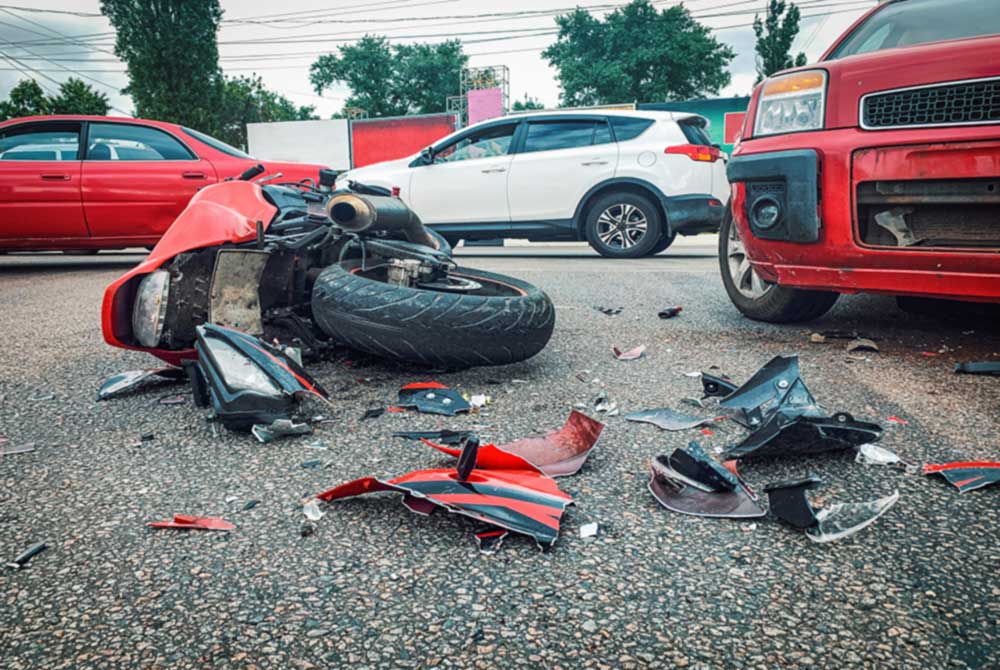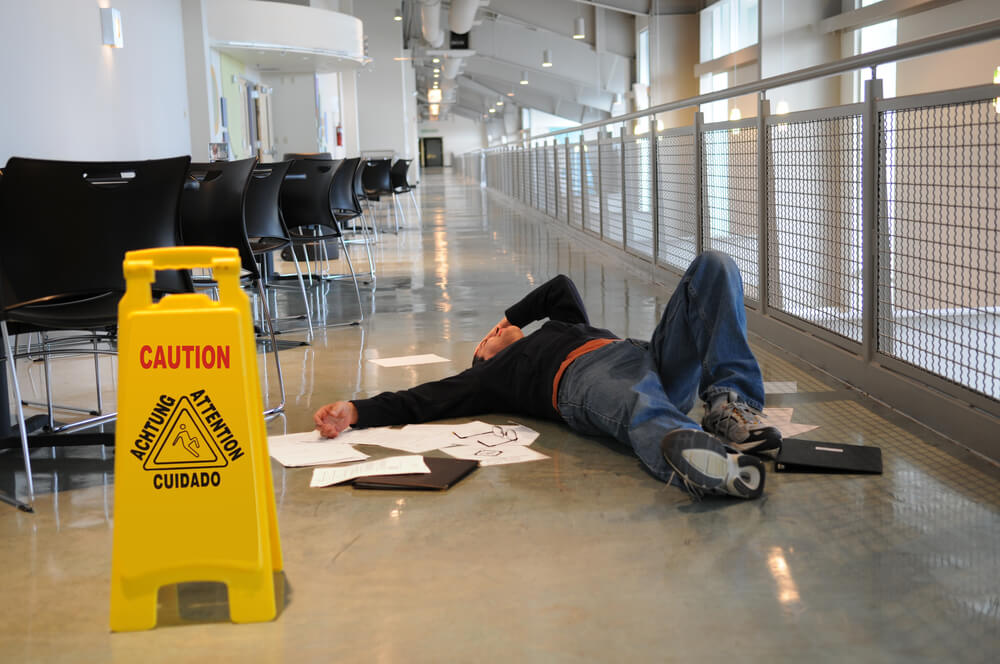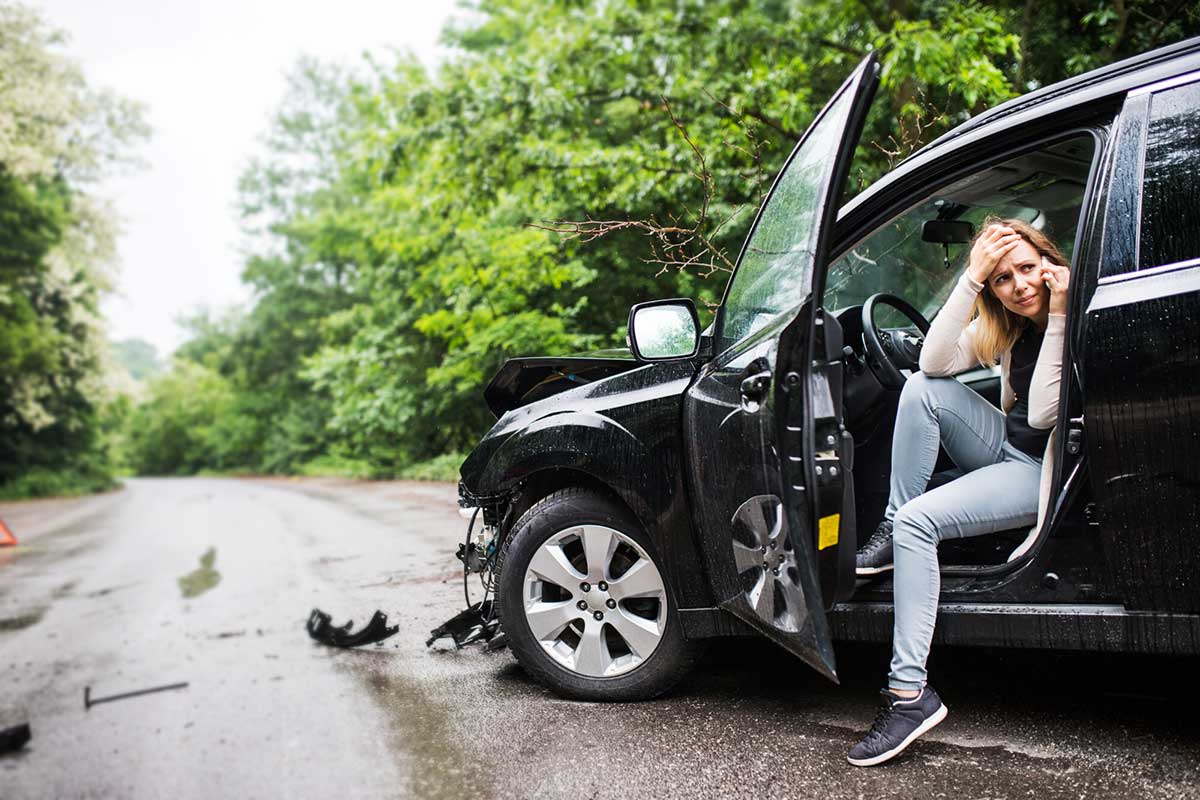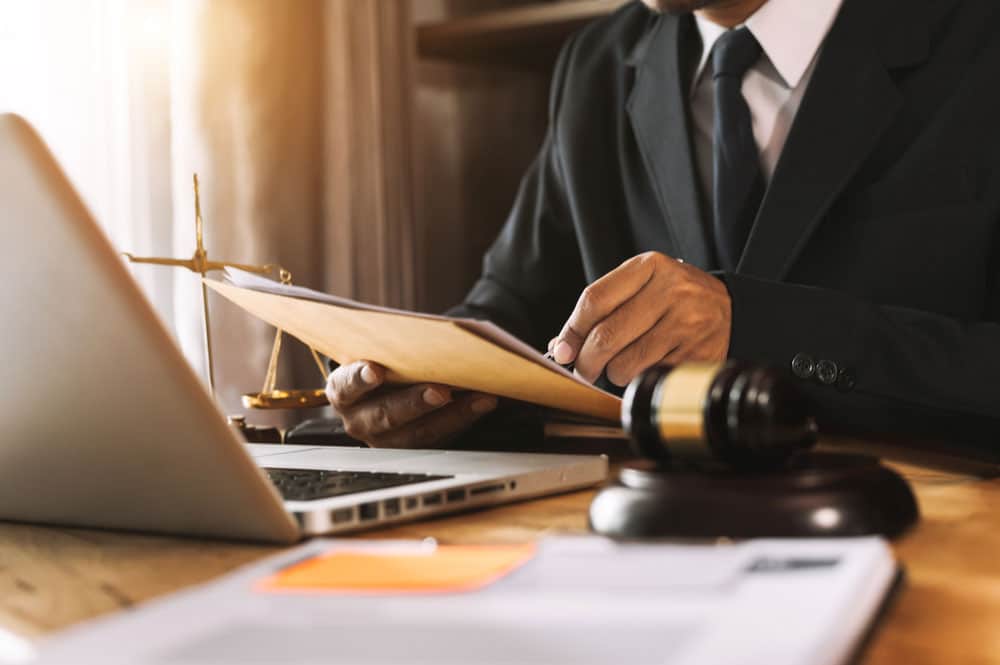Attorneys who routinely handle slip and fall injury cases often get asked a lot of questions about just how these types of claims work. These frequently asked slip and fall questions are completely understandable because no two cases are alike. One case may involve someone falling down a flight of stairs due to inadequate railing or lighting, while another case might involve a property owner concealing a large defect in the floor. Since these cases are so different each time, it’s no wonder people get confused about what matters and what does not.
At Michael Kelly, we want you to understand your rights and be ready to fight for them. Throughout the Boston area, our law office stands ready to help accident victims with even the most complex and challenging injury claims. Give us a call to schedule a free consultation and see if we can help you.
How Do Slip and Fall Cases Work?
This is probably one of the most common slip and fall accident questions.. A slip and fall is actually known as a form of “premises liability” claim in the law. This type of case is based on the theory that property owners are required to keep their premises safe and hazard free for people they invite onto the property. If someone has a dangerous property or fails to disclose hazards to guests, they might be responsible for paying for the injuries that result.
It’s a simple enough concept, but it’s still not widely understood. In order to recover compensation, you must be able to prove your legal relationship to the owner of the property, why you were on the property, how you were injured, and that it was the property owner’s fault. You also must be able to prove the damages that you suffered as a result.
How Much Is a Slip and Fall Accident Worth?
There is unfortunately no way to answer this question without knowing the extent and long-lasting effects of the injury. As a general rule of thumb, however, the more serious and catastrophic the injury, the greater the potential compensation. The higher the medical bills, lost income, and other losses the victim suffers, the more money they arguably might be able to recover in a slip and fall claim..
What Types of Damages Are Covered by Slip and Fall Compensation?
Massachusetts law allows injury victims to seek compensation from those who cause their injuries, but the types of compensation are based on the types of legal “damages” that are suffered. The law recognizes three broad categories of damages:
- Economic – These types of losses are financial in nature, meaning they can be calculated numerically. This includes medical expenses, lost earnings at work, lost future earnings, future medical treatment expenses, adaptive housing needs, out-of-pocket expenses, property damages, and so forth. This covers all of your financial and monetary losses relating to your slip and fall injury.
- Non-economic – Also called hedonic damages, these are losses of a more personal and emotional nature that are less susceptible to monetary calculation. For instance, these damages include emotional distress, anxiety, loss of enjoyment of life, and pain and suffering.
- Punitive – This final category is very rare and only used by courts in the most extreme cases of willful or reckless conduct. It is actually not a damage at all. Punitive awards are used to deter defendants from repeating grossly negligent behavior and punish wrongdoing. The best examples are where large corporations intentionally put people in direct harm in order to make a profit, and despite repeated warnings, they continue doing it until someone is catastrophically injured.
How Do I File a Slip and Fall Accident Report?
This all depends on where and how you fall. If you are at a business, you will want to let the property owner or manager know about it immediately. Likewise, if the injury is severe, you should probably call 911 to get first responders on the scene. This will serve two purposes: It will ensure you get the emergency care you need, and it will create a clear official record of the accident.
In other situations where there is no one around, you can take photos, get contact information from witnesses, and try to figure out who operates the business or owns the property. You will want to document everything you can.
How Do You Prove Negligence in a Slip and Fall?
This is perhaps the biggest issue for attorneys who help clients with slip and fall injuries. After all, proving negligence is what the case is all about.
In general, negligence just means that the defendant property owner owed the victim some legal obligation, failed to meet the obligation, and by virtue of that failure, the injury resulted. Proving this can require a lot of work. At Michael Kelly, our slip and fall lawyers often do the following in order to prove a case:
- Hire private investigators
- Examine the scene of the accident
- Photograph the scene and request any video surveillance footage
- Talk to witnesses
- Consult with engineers and other experts
- Consult with medical specialists
- Search for public records and evidence that the defect was known
The more evidence we can obtain, the stronger the case usually is. This is why at our law firm, we undertake a swift and comprehensive investigation on each case.
What Should I Do to Help Preserve My Slip and Fall Claim?
Perhaps the best thing you can do is get medical care right away. Beyond that, here are some helpful tips for preserving your case:
- Go to the hospital.
- Notify the property owner or business operator.
- Take lots of photos if possible.
- Get the names of any and all witnesses who will share their contacts.
- Keep all paperwork, receipts, and bills related to the accident.
- Do not give a recorded statement to the insurance company.
- Call a lawyer as soon as possible.
- Stay off of social media until your claim is resolved.
The sooner our staff is made aware of a case, the faster we can get people to the scene to preserve evidence and put the defendant and their insurance company on notice.
Do I Need a Lawyer for a Slip and Fall?
As with most accidents, it really depends. First of all, it depends on the severity of the injury. If you stubbed your toe or suffered some light bruising, then you probably just want to work it out with the property owner. The cost of pursuing a slip and fall case just doesn’t justify always hiring a lawyer.
However, a good rule to go by is that if you receive medical care beyond just non-emergency first aid, you should consider calling to at least talk to a lawyer free of charge. This means if you go to the hospital, take an ambulance, or must seek any formal medical care from a doctor, then it’s likely worth taking the time to sit down and talk with a lawyer.
How Long Does It Take to Settle a Slip and Fall?
Some cases can be settled within just a few months of the injury. This is usually the case when medical care does not take long. In minor injury claims where the victim seeks emergency treatment but does not require follow-up care, it could arguably be wrapped up pretty quickly without ever needing to go to court.
On the other hand, if the medical treatment takes a long time or continues for months or even years, the case will likely last longer. This is because you don’t really know the full value of your case until you either finish treatment or reach a point where doctors are able to determine the injury is permanent.
Likewise, the length of time a case lasts largely depends on the insurance company and whether you have to file a slip and fall lawsuit. Sometimes a defendant or their insurance company will just be unreasonable. If so, you may need to file a lawsuit in order to force the matter to move forward. Some lawsuits can take several years to resolve. Therefore, each case truly is unique.
How Are Settlements for Slip and Fall Cases Determined?
Your injuries and how they have affected you are the major factor in determining a settlement. An insurance company will be looking primarily at your medical treatment to see if it was necessary and directly related. If you suffered a broken leg, for instance, but received a lot of care for unrelated things, this can pose a problem. Likewise, if you were already suffering from a very similar condition, this could result in a reduced offer.
Ultimately, it’s best to talk to a lawyer who has handled a lot of slip and fall cases because with experience comes a sense of understanding about how the case will likely turn out. Your attorney will need to provide extensive documentation of the losses you have suffered in order to support your argument for a maximum settlement amount.
How Much Time Do You Have to Sue After a Slip and Fall?
As with just about everything in the law, there is the general rule, then there are the exceptions. In Massachusetts, the general statute of limitations for a personal injury (including a slip and fall) is just three years from the date of the injury. However, there are exceptions. For instance, if you suffered an injury in a federal building or government office operated by the federal government, a federal statute of limitations may apply, which is just two years from the injury date.
Thus, it’s very important to make sure you are getting legal help early so you do not miss any deadlines and forfeit your right to compensation.
What Happens If I Have a Slip and Fall Accident at Work?
Injuries at work are an entirely different matter. While you may still have a right to claim compensation from the negligent business or property owner, your primary cause of action might well be a workers’ compensation claim..
In Massachusetts, an injured worker can bring a claim for workers’ compensation benefits with their employer’s insurance carrier, which will often help to pay a lot of the initial medical bills and treatments. However, if someone else is actually liable for the injury, such as a contractor or subcontractor, the injured worker may be able to pursue compensation from them.
What Happens If I Have a Slip and Fall Accident in a Hospital?
Many people think medical malpractice is the only injury you can suffer in a hospital. But people fall in hospitals all the time. If the fall is the result of a medical error (e.g. overmedication, patient being dropped, failure to monitor a patient with certain conditions, etc.), then it may indeed be medical negligence.
However, often visitors fall due to wet floors that are left without warning. Likewise, patients may simply be walking to the soda machine when they trip over a medical device or some other hazard that has been left out. These types of injuries have nothing to do with bad medical care and everything to do with allowing an unsafe and hazardous condition to go unmonitored.
Are Slip and Fall Settlements Taxable?
Only part of the compensation is taxable. As a general matter, any portion of a settlement that is attributable to pain and suffering, emotional distress, or reimbursement of medical expenses will not usually be subject to state or federal income tax.
On the other hand, any portion of a settlement that is attributable to lost wages that would have been subject to taxes if earned would naturally be taxable. Likewise, if you agree to be bound by a confidentiality agreement in your settlement, make sure you work very closely with your attorney before signing because this can trigger tax consequences. There are ways around it, so just be cautious.
Ultimately, it is always best to speak with a CPA before filing your taxes after receiving a large sum of money in a slip and fall case.
What Are Common Causes for Slip and Falls?
Perhaps the most common causes of slip or trip and fall injuries are:
- Wet floors without warning signs
- Objects left out on the floor
- Large cracks or defects in pavement or sidewalks
- Holes and other defects in a floor
- Stairs left in disrepair, including missing steps and railings
- Inadequate lighting
- Torn carpeting or loose rugs
Where Are the Most Common Places to Slip and Fall?
Of all the places people get hurt, the following are just some of the most common examples of where slip and fall accidents occur:
- Motels and hotels
- Shopping centers and malls
- Grocery stores
- Restaurants
- Apartment complexes
- Medical or healthcare facilities
- Nursing homes and senior living facilities
- Public sidewalks
- Driveways and parking lots
Talk to a Boston Slip and Fall Lawyer Today
If you’ve suffered a slip and fall or trip and fall injury in the greater Boston area, you need to get experienced legal representation right away. The sooner you talk to a slip and fall attorney, the sooner you can get answers about your own unique case. Contact Michael Kelly today to learn more or to schedule a free case evaluation with an attorney.







